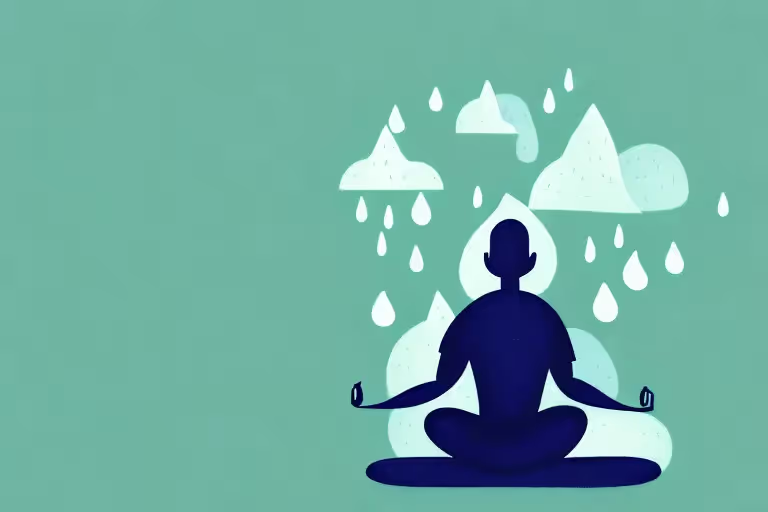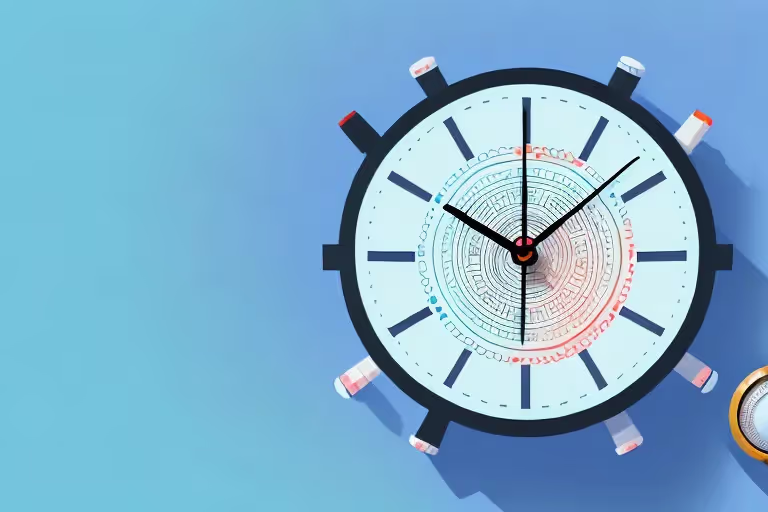Are you ready to explore the fascinating world of lucid dreaming? Many of us have experienced the occasional lucid dream - that extraordinary sensation of being aware that we're dreaming while still in the midst of slumber. But what about those fortunate individuals who can effortlessly lucid dream every single night? Is such a gift truly rare, or is it something that can be attained by anyone willing to delve deeper into the realm of consciousness? Let's dive in and unravel the secrets behind this enigmatic phenomenon.
Understanding the Phenomenon of Lucid Dreaming
Before we can discuss the rarity of lucid dreaming every night, it's important to grasp the essence of this extraordinary experience. Lucid dreaming occurs when we become self-aware within our dreams, enabling us to have control over our actions and surroundings. It's like having a backstage pass to the theater of our subconscious mind, where we can bend reality to our will and explore limitless possibilities.
To truly appreciate the rarity of nightly lucid dreaming, we first need to understand what lucid dreaming is and the science behind its perplexing nature.
What is Lucid Dreaming?
Lucid dreaming is a state in which we become aware that we are dreaming while still in the midst of the dream itself. This realization can trigger a profound sense of clarity and enable us to consciously interact with the dream environment. Imagine soaring through the sky, exploring fantasy realms, or conversing with long-lost loved ones, all within the immersive landscape of your own subconscious mind.
Lucid dreaming is not just a fleeting moment of awareness within a dream; it is a skill that can be developed and honed over time. Through various techniques such as reality checks, dream journaling, and meditation, individuals can increase their chances of experiencing lucidity during their dreams. It is a journey of self-discovery and exploration, where the boundaries between the waking world and the dream world become blurred.
The Science Behind Lucid Dreaming
Lucid dreaming has fascinated scientists and researchers for centuries, leading to a deeper understanding of this mystical phenomenon. Neuroscientists have discovered that lucid dreaming involves increased activation in the prefrontal cortex - the part of the brain responsible for decision-making and self-awareness. This heightened brain activity allows lucid dreamers to realize they are in a dream and exert some level of control over their dream experiences.
Further studies have shown that lucid dreaming is associated with a unique pattern of brainwave activity. During a lucid dream, the brain exhibits a combination of alpha, beta, and gamma waves, indicating a state of heightened consciousness. This state of consciousness is similar to that experienced during wakefulness, blurring the line between the dream world and reality.
Understanding the science behind lucid dreaming has opened up new avenues for research and exploration. Scientists are now investigating the potential therapeutic applications of lucid dreaming, such as overcoming nightmares, improving problem-solving skills, and enhancing creativity.
Now that we've gained some insight into the nature of lucid dreaming, let's explore the rarity of achieving this remarkable state on a nightly basis.
The Rarity of Lucid Dreaming
While some individuals may unlock the ability to lucid dream every night, it is indeed a rarity among the general population. For most people, lucid dreaming occurs sporadically, happening only a few times a year, if at all. However, the occurrence and frequency of lucid dreams can vary significantly from person to person, ultimately depending on a wide range of factors.
Lucid dreaming is a phenomenon that has fascinated scientists, psychologists, and dream enthusiasts for centuries. The ability to become aware and conscious within a dream opens up a world of possibilities, where the dreamer can actively participate and manipulate the dream environment. It is no wonder that many people are intrigued by the idea of lucid dreaming and seek to experience it themselves.
How Often Does the Average Person Lucid Dream?
Research suggests that the average person experiences a lucid dream once or twice a month, with some individuals having lucid dreams more frequently, while others never experience them at all. The sporadic nature of lucid dreaming makes it all the more captivating, as it remains a mysterious and elusive phenomenon.
Lucid dreaming is like a hidden treasure buried within the vast landscape of our subconscious mind. Some individuals may stumble upon this treasure more frequently, while others may spend a lifetime searching for it without success. The reasons behind this variability are still not fully understood, but researchers continue to explore the depths of the human mind in hopes of unraveling the mysteries of lucid dreaming.
Factors Influencing the Frequency of Lucid Dreams
The frequency of lucid dreaming can be influenced by various factors, including sleep quality, stress levels, and personal motivation. Individuals who consistently practice techniques to induce lucid dreams, such as reality checks and keeping dream journals, are more likely to have lucid dreams on a regular basis. These techniques serve as a way to heighten self-awareness and increase the chances of recognizing the dream state while asleep.
Furthermore, the quality of sleep plays a crucial role in the occurrence of lucid dreams. Adequate sleep duration and good sleep hygiene can contribute to a more conducive environment for lucid dreaming. By establishing a consistent sleep schedule and creating a relaxing bedtime routine, individuals may enhance their chances of having lucid dreams more frequently.
Stress levels also impact the likelihood of experiencing lucid dreams. When individuals are under high levels of stress, their dream recall and overall dream vividness tend to decrease. Lucid dreaming requires a certain level of mental clarity and focus, which can be challenging to achieve when the mind is overwhelmed with stress. Therefore, finding healthy ways to manage stress, such as engaging in relaxation practices like meditation or yoga, may indirectly increase the frequency of lucid dreams.
It is important to note that while these factors can influence the occurrence of lucid dreams, they do not guarantee consistent lucid dreaming for everyone. Each person's mind is unique, and the intricacies of the dreaming mind are still being explored. As researchers continue to delve into the realm of lucid dreaming, new insights may emerge, shedding light on the elusive nature of this extraordinary phenomenon.
The Experience of Nightly Lucid Dreaming
Imagine a world where every night you are transported to fascinating realms of your own creation. For those who have unlocked the ability to lucid dream every night, this captivating experience becomes a regular part of their sleep routine. Let's delve into the personal accounts of frequent lucid dreamers and explore the benefits and drawbacks that accompany this extraordinary ability.
Personal Accounts of Frequent Lucid Dreamers
Lucid dreamers who experience nightly adventures often report a heightened sense of self-awareness, creativity, and emotional well-being. They are able to engage in incredible adventures, confront fears, and gain valuable insights by exploring the depths of their own subconscious mind. Nightly lucid dreaming offers an unparalleled playground for personal growth and introspection.
The Benefits and Drawbacks of Nightly Lucid Dreams
While nightly lucid dreaming may seem like an incredible gift, it's essential to recognize that there can be both positive and negative aspects to this experience. On the positive side, frequent lucid dreamers have the unique opportunity to transform their dreamscapes into a vibrant and empowering reality, using their dreams as a canvas for exploration and personal development. However, there can also be drawbacks, such as the potential for increased fatigue due to the heightened cognitive activity during dreaming, as well as the blurring of boundaries between dream and waking life.
Techniques to Induce Lucid Dreaming
For those inspired to unlock the realms of lucid dreaming, a plethora of techniques and practices are available to enhance the likelihood of achieving this extraordinary state. Let's explore some popular methods and the effectiveness behind them.
Popular Methods for Lucid Dream Induction
Reality checks, maintaining a dream journal, and practicing meditation before bed are just a few of the well-known techniques used to induce lucid dreaming. By incorporating these practices into your daily routine and developing a heightened sense of awareness during waking life, you may increase your chances of lucid dreaming more frequently.
The Effectiveness of Lucid Dreaming Techniques
While the effectiveness of lucid dreaming techniques may vary from individual to individual, numerous studies have demonstrated the potential for these methods to enhance dream self-awareness and increase the frequency of lucid dreams. It's important to approach these techniques with an open mind and a sense of curiosity, allowing yourself to embark on this remarkable journey of self-discovery.
The Impact of Lucid Dreaming on Sleep Quality
As we explore the profound world of lucid dreaming, an intriguing question arises - does the act of lucid dreaming affect our sleep quality? Let's delve into the relationship between lucid dreaming and the delicate art of a restful slumber.
Does Lucid Dreaming Affect Sleep Patterns?
Research suggests that lucid dreaming does not significantly impact the overall quality of sleep. However, it's important to note that the vivid and stimulating nature of lucid dreams can occasionally cause individuals to wake up feeling more mentally and emotionally engaged, potentially leading to a slight disruption in sleep. Nevertheless, this disruption is generally minimal and does not impede the overall restorative benefits of a good night's sleep.
The Relationship Between Lucid Dreaming and Sleep Disorders
For individuals with specific sleep disorders, such as insomnia or sleep apnea, lucid dreaming may present unique challenges. Certain sleep disorders can make it more difficult to achieve a state of lucidity within dreams or may interrupt the continuity of dreams altogether. As with any sleep-related matters, it is essential to prioritize overall sleep health and seek professional guidance if necessary.
In conclusion, the rarity of lucid dreaming every night is an exceptional phenomenon that few individuals experience naturally. However, through diligent practice, understanding the techniques involved, and making conscious lifestyle choices, anyone can embark on a journey towards unlocking the mysteries of their own dreamscape.
For those seeking guidance and support in their lucid dreaming endeavors, the Aura Health App offers a wealth of resources and tools. With its user-friendly interface and comprehensive programs, the app provides step-by-step guidance, dream journaling features, and a vibrant community of like-minded explorers. Whether you are a newcomer to lucid dreaming or an experienced enthusiast, the Aura Health App can be your trusted companion on this magical journey of self-discovery.
Aura is Your All In One App for Meditation, Mindfulness Wellbeing
Find peace every day with one app for your whole well-being. There is no one-size-fits-all solution to mental well-being. Aura is the first all-in-one wellness app that learns how to best help you. Discover an endless library of expert-created tracks for your well-being, all taught by the world’s best coaches, therapists, and storytellers. With Aura's personalized recommendations, you can find peace every morning, day and night.



.webp)






.avif)

%20(1).avif)


.avif)
.avif)
.webp)


.avif)


















































































































.avif)

















.svg)









